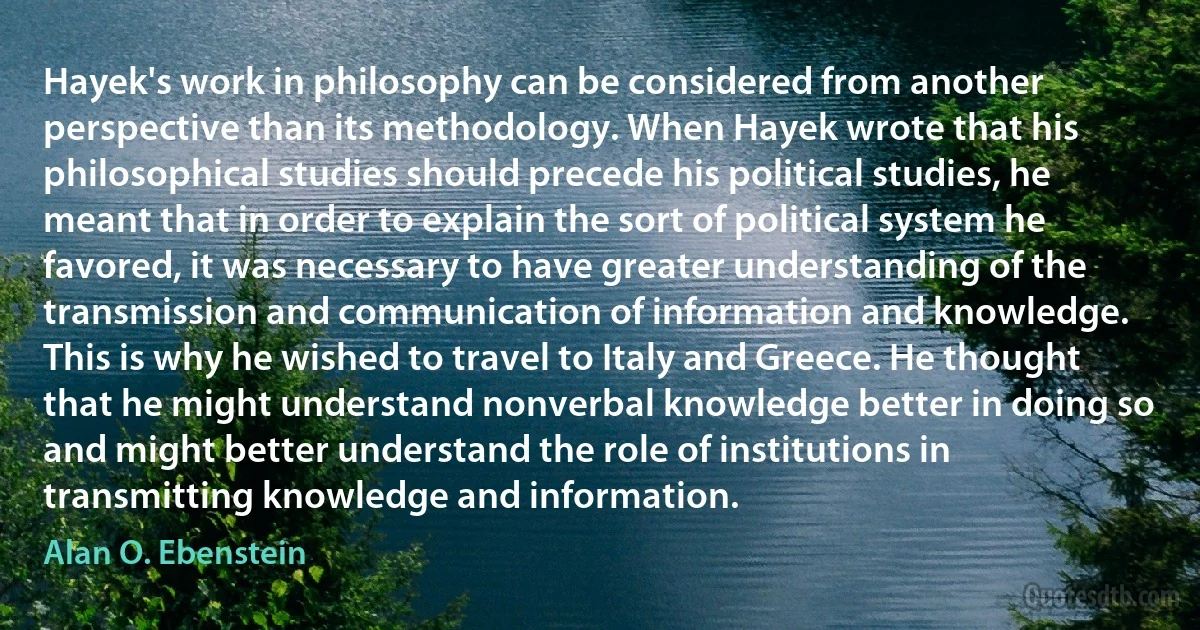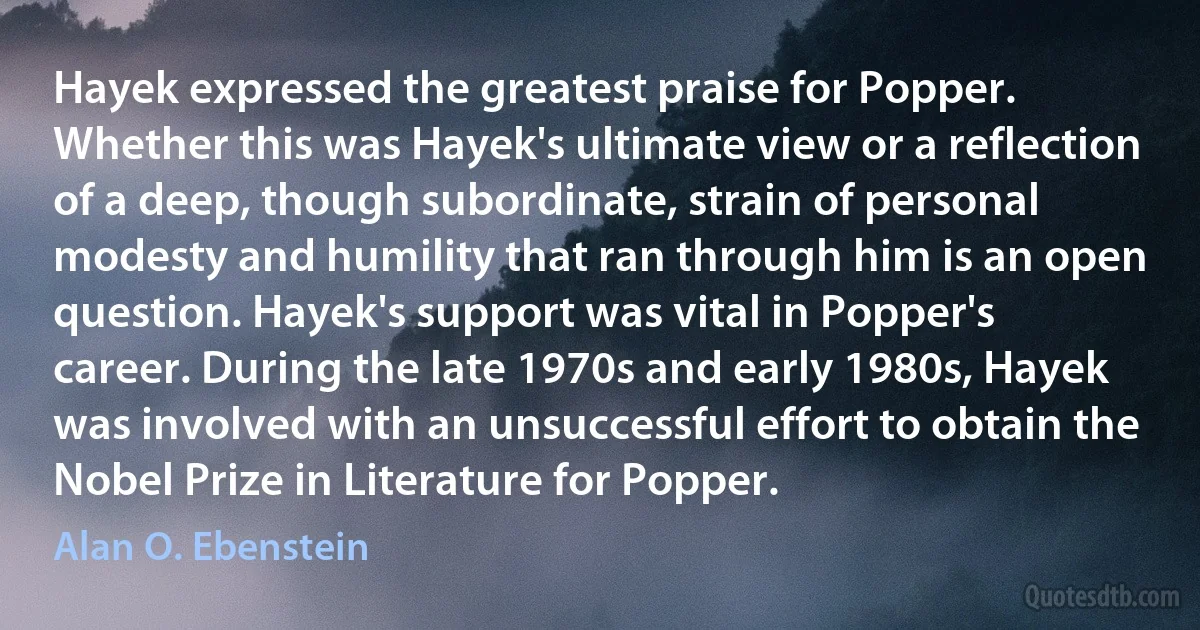Alan O. Ebenstein quotes
Expressed egotism is, of course, no reason necessarily to disregard someone's work, but it is a warning signal. If someone can evaluate his work so poorly, is the work itself likely to be better? In many of his areas of intellectual interest, Popper's work is wanting.
Hayek did more to advance Popper professionally early in his career than anyone else, and Popper remembered his personal debt to Hayek. Over the years, he wrote him a number of appreciative letters.

Alan O. Ebenstein
Hayek's move from economic theory to political philosophy was a natural evolution in his ideas. First, he considered the influence of prices in production. Then he considered the larger question of the role of prices in social life. The conclusion he reached was that law should guarantee to each person a protected sphere within which each could live as much as possible as he pleased. Later in his career, he progressed to the idea that whole societies through their customs, morals, and rules are engaged in macrocompetition, the survivor of which would possess the customs, morals, and rules that are the most materially productive and result in the highest standard of living for the most-the economist's goal.

Alan O. Ebenstein
Hayek ripped G. W. F. Hegel in The Counter-Revolution of Science's third part for his "historicism”-the idea, in Hayek's terminology, that history moves in set and predictable stages. He considered this idea fatally flawed and societies that were based on it to be unsuccessful, unproductive, and unfree. Historicism denies free will. The future is what we make of it.

Alan O. Ebenstein
Placement of both Hayek and Mill in the liberal tradition is suspect to many historians of political thought for various reasons. First, Mill also expressed socialist sentiments, so to classify him as a liberal has seemed inaccurate to some more right-inclined liberals. Second, Hayek is sometimes considered more a conservative by left-inclined liberals, and not in the liberal tradition as it has evolved. Nonetheless, Mill and Hayek were the two greatest liberals of the nineteenth and twentieth centuries.

Alan O. Ebenstein
Hayek emphasized the importance of rules. He thought that what society should do is not to direct the individual in his or her particular actions, but to create a metaphysical structure, as it were, enforced by rules or laws, that create stable expectations and thus allow rational action.

Alan O. Ebenstein
Hayek's essential political philosophy was that liberty is the supremacy of law. To some, this may appear a paradoxical conception of liberty, for liberty is too often considered to be the absence of law. This, however, was the exact opposite of Hayek's view. He thought that liberty is not possible without law. Right law is liberty.

Alan O. Ebenstein
Hayek expressed more fully and deeply than Mises the epistemological argument for free market order. The crucial issue for Hayek became not that without prices individuals cannot calculate (though he thought this to be the case), but that the division of knowledge renders centralized control of an economy or society impossible.

Alan O. Ebenstein
The history of the Austrian school remains unfinished, and what happens in the future may influence interpretations of the past as much as what has already occurred. An increasing number of economists, however, believe that a reconceptualization of the role the Austrian school has played in academic economics from the 1870s to the present would be more accurate than the prevailing view.

Alan O. Ebenstein
True and false individualism differ, according to Hayek, not primarily about values but about facts. The question of how societies are actually ordered or organized separates them: Are communities created, or do they evolve? The answer is obviously some combination of the two, but the relative weighting is of the greatest importance.

Alan O. Ebenstein
The General Theory is at once both a book of economic theory and a font of economic prejudices-there are probably few academics in economics and political science who do not have an opinion of it, whether they have read it or not. It has reached the status-which it obtained almost immediately-where the fact of its existence is as important, if not more important, than what it actually says.

Alan O. Ebenstein



